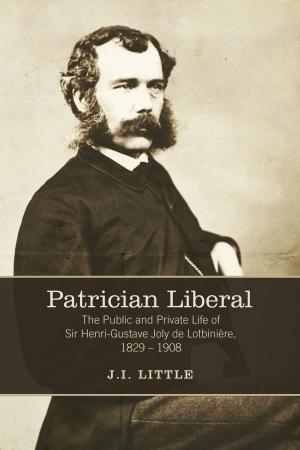The Measure of Democracy
Polling, Market Research, and Public Life, 1930-1945
Nonfiction, History, Canada, Social & Cultural Studies, Political Science, International| Author: | Daniel Robinson | ISBN: | 9781442638716 |
| Publisher: | University of Toronto Press, Scholarly Publishing Division | Publication: | April 24, 1999 |
| Imprint: | Language: | English |
| Author: | Daniel Robinson |
| ISBN: | 9781442638716 |
| Publisher: | University of Toronto Press, Scholarly Publishing Division |
| Publication: | April 24, 1999 |
| Imprint: | |
| Language: | English |
Politicians, government officials, and public relations officers lean heavily on polling when fashioning public policy. Proponents say this is for the best, arguing that surveys bring the views of citizens closer to civic officials. Critics decry polling's promotion of sycophantic politicians who pander to the whims of public sentiment, or, conversely, the use of surveys by special interest groups to thwart the majority will.
Similar claims and criticisms were made during the early days of polling. When George Gallup began polling Americans in 1935, he heralded it as a bold step in popular democracy. The views of ordinary citizens could now be heard alongside those of organized interest groups. When brought to Canada in 1941, the Gallup Poll promised similar democratic rejuvenation. In actual practice, traditionally disadvantaged constituencies such as women, the poor, French Canadians, and African Americans were often heavily underrepresented in Gallup surveys. Preoccupied with election forecasting, Gallup pollsters undercounted social groups thought less likely or unable to vote, leading to a considerable gap between the polling results of the sampled polity and the opinions of the general public.
Examining the origins and early years of public opinion polling in Canada, Robinson situates polling within the larger context of its forerunners – market research surveys and American opinion polling – and charts its growth until its first uses by political parties.
Politicians, government officials, and public relations officers lean heavily on polling when fashioning public policy. Proponents say this is for the best, arguing that surveys bring the views of citizens closer to civic officials. Critics decry polling's promotion of sycophantic politicians who pander to the whims of public sentiment, or, conversely, the use of surveys by special interest groups to thwart the majority will.
Similar claims and criticisms were made during the early days of polling. When George Gallup began polling Americans in 1935, he heralded it as a bold step in popular democracy. The views of ordinary citizens could now be heard alongside those of organized interest groups. When brought to Canada in 1941, the Gallup Poll promised similar democratic rejuvenation. In actual practice, traditionally disadvantaged constituencies such as women, the poor, French Canadians, and African Americans were often heavily underrepresented in Gallup surveys. Preoccupied with election forecasting, Gallup pollsters undercounted social groups thought less likely or unable to vote, leading to a considerable gap between the polling results of the sampled polity and the opinions of the general public.
Examining the origins and early years of public opinion polling in Canada, Robinson situates polling within the larger context of its forerunners – market research surveys and American opinion polling – and charts its growth until its first uses by political parties.















